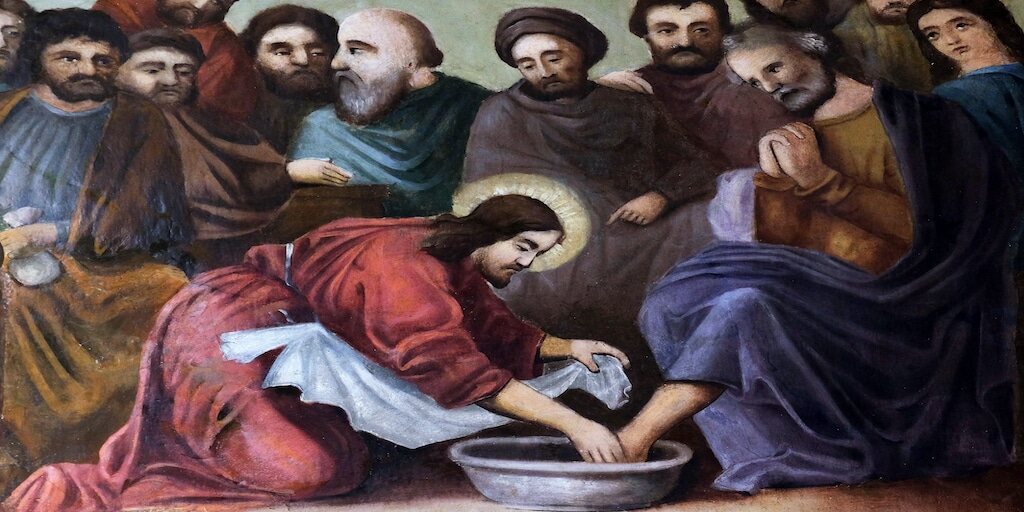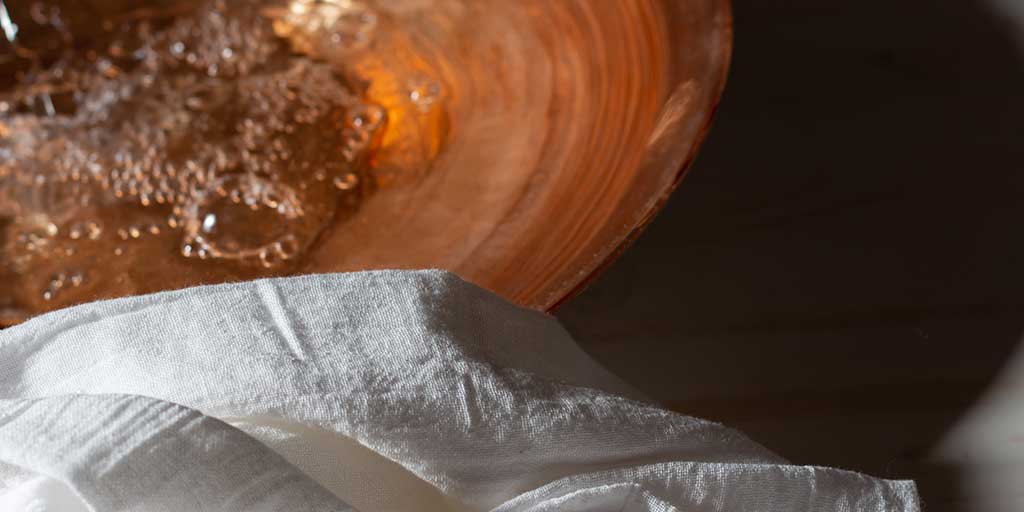Introduction
The room was heavy that night. The disciples shuffled in from the dusty streets of Jerusalem, their feet soiled from the day’s journey. They reclined at the table for the Passover meal, but instead of quiet reverence, the air was tense with argument. Luke tells us they were disputing about which of them was the greatest. Their hearts were full of pride, not humility.
And then it happened. Without a word, Jesus rose from the table. The conversation stopped. They watched as He laid aside His outer garment, took up a towel, poured water into a basin, and began to wash their feet.
This was unthinkable. Foot washing was necessary in that culture, but it was considered beneath even a Jewish servant. Only Gentile slaves did such menial work. Yet here was the Lord and Teacher, the eternal Son of God, kneeling before them with basin and towel.
John 13 is not merely a scene to remember. It is a revelation of the heart of God.
The love that stoops
John begins with this statement: “Having loved His own who were in the world, He loved them to the end” (John 13:1). The basin and the towel are not random gestures. They are the visible expression of Jesus’ love.
Humility has always been the mark of His redeeming love. In creation, He stooped to form man from the dust and breathed life into him. In covenant, He humbled Himself to dwell among His people. In His incarnation, He stooped lower still, taking on flesh and entering our weakness. Now, in the upper room, He stoops once more.
John tells us that Jesus “laid aside His garments.” This action speaks beyond physical movement. It echoes Paul’s words in Philippians 2 that Christ “emptied Himself” and took the form of a servant. The basin and the towel are a parable of His cross.
The resistance of pride
When Jesus came to Peter, the disciple could not bear it. “Lord, do You wash my feet?” His protest was strong, almost indignant. “You will never wash my feet.”
Peter could not yet understand the meaning of this act. The full significance of the basin and the towel was hidden from him in that moment. But we stand on this side of the cross and can see the self-sacrificing love of Christ in full.
Jesus told Peter, “If I do not wash you, you have no part with Me.” This was about far more than dirty feet. It was about salvation itself. Unless we receive Christ’s cleansing, we remain in our sin. Pride always resists grace, but salvation is Christ’s work alone.
Peter eventually surrendered, though he overcompensated: “Lord, not my feet only but also my hands and my head.” Jesus answered, “The one who has bathed does not need to wash, except for his feet.” Salvation is once for all, but the daily cleansing of confession and forgiveness continues. The basin and the towel remind us that we must first receive before we can ever serve.
The example to follow
After washing their feet, Jesus put His garment back on, returned to His place, and asked, “Do you understand what I have done to you?”
He explained: “You call Me Teacher and Lord, and you are right, for so I am. If I then, your Lord and Teacher, have washed your feet, you also ought to wash one another’s feet” (John 13:13–14).
Jesus appealed to His authority. He did not deny being Lord. He affirmed it. Yet as Lord, He chose the lowest act of service. If the greatest stooped to serve, then none of His followers can ever claim to be above such service.
His command is not that we repeat the ritual for ritual’s sake but that we embody its spirit: humility, the willingness to bend low, and the readiness to meet others’ needs. “I have given you an example, that you also should do just as I have done to you” (v. 15). Jesus added, “If you know these things, blessed are you if you do them” (v. 17). The blessing comes not in knowing but in doing.
The mark of discipleship
Later that evening, Jesus gave them a new commandment: “That you love one another; just as I have loved you, you also are to love one another. By this all people will know that you are My disciples, if you have love for one another” (John 13:34–35).
The basin and the towel are not just gestures of humility. They are the defining marks of discipleship. Jesus’ people are to be known not by power, prestige, or performance, but by love. This love is not sentimental or shallow. It is the kind of love that bends low, that takes up the towel, that chooses to serve.
When the world looks at the church, it should see basin-and-towel love. That is the testimony Jesus desires for His people.
The cross behind the basin
Everything in John 13 points beyond the upper room to the hill outside the city. The basin and the towel point to the cross. The stooping low in service points to the stooping low in death.
At Calvary, Jesus did the ultimate washing. He bore our filth, carried our guilt, and endured our shame. The King stooped lower than any servant, humbling Himself to the point of death on a cross.
But just as He took up His garments again, so He rose from the grave, clothed in glory. His humility did not end in humiliation—it led to exaltation. The One who stooped to serve is the One before whom every knee will bow and every tongue confess that He is Lord.
A call to us
Peter did not yet understand. But we do. We were not in that upper room having our feet washed by the Son of God, but we have experienced something even more profound. We have been washed clean by His blood, forgiven of our sin, and brought near to God forever.
And now He calls us to live what we have received. Have you let Christ wash you? Have you humbled yourself to His cleansing? Without it, you have no part with Him.
And believer, are you willing to take up the basin and the towel? To serve where no one notices, to forgive where it costs, to love when it is undeserved? This is the way of Christ. This is the mark of discipleship.
The world will not know we belong to Him by our pride, our power, or our performance. It will know by our love. The basin and the towel are still the test.

.webp)




Leave a comment